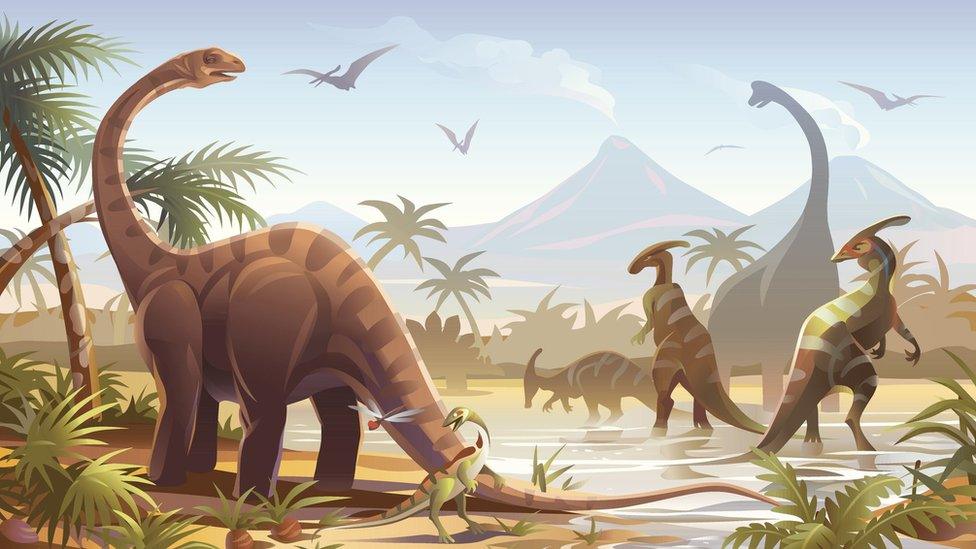Dinosaurs: Volcanoes may have helped dinos dominate Earth
- Published
- comments

A massive change in the global climate 230 million years ago may have helped dinosaurs thrive on planet Earth!
A period of time - called the Carnian Pluvial Episode - that lasted for two million years towards the end of the Triassic era, saw huge volcanic eruptions across the Earth's surface.
This meant the planet experienced an increase in global temperature, humidity and rainfall - creating a climate referred to as a 'mega-monsoon'.
Researchers believe that this shift in weather contributed to an increase in some species of dinosaurs, and the extinction of others.
The Triassic era, which began roughly 250 million years ago, was a time of massive ecological change. While dinosaurs had already emerged in this period, they were skinnier and more reptilian-looking.
But, it was during this time period that dinosaurs changed, becoming some of the more well known creatures you might recognise, like the Tyrannosaurus rex or the Triceratops that dominated all over planet Earth until the end of the Cretaceous period.
A new study looked at four periods during the Carnian Pluvial Episode that saw big changes in the types of animals and plants, which researchers could match to powerful volcanic activity.
Within the space of two million years the world's animal and plant life underwent major changes... these events coincide with a remarkable interval of intense rainfall known as the Carnian Pluvial Episode.
Jing Lu, a researcher at the China University of Mining and Technology and also a co-author of the study, added that these eruptions "were powerful enough to drive evolutionary processes during the Triassic."
But, it wasn't just dinosaurs that benefited from this change in climate!
Ferns, fir trees, crocodiles, turtles, insects and the world's first mammals all began to thrive in this period.
Dr Emma Dunne, a Palaeobiologist also at the the University of Birmingham, who was not involved in the study, said: "This relatively long period of volcanic activity and environmental change would have had considerable consequences for animals on land.
At this time, the dinosaurs had just begun to diversify, and it's likely that without this event, they would never have reached their ecological dominance we see over the next 150 million years."
- Published26 September 2021
- Published27 September 2021
- Published12 August 2020
